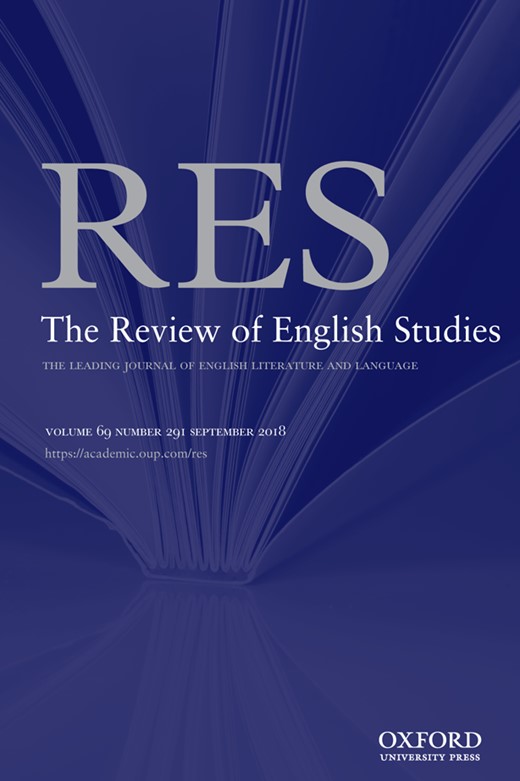-
Views
-
Cite
Cite
Erin A McCarthy, Reading Women Reading Donne in Manuscript and Printed Miscellanies: A Quantitative Approach, The Review of English Studies, Volume 69, Issue 291, September 2018, Pages 661–685, https://doi.org/10.1093/res/hgy018
Close - Share Icon Share
Abstract
Although John Donne’s relationships with female patrons have been thoroughly documented, his works also appealed to less well-known women. This essay challenges the critical assumptions that have led to the historical erasure of many of Donne’s women readers. It begins with a quantitative survey of the contents of early modern manuscript miscellanies associated with a diverse range of ‘female agents’ whose engagements with manuscript verse took many forms. This analysis reveals that early modern women’s preferences in individual poems and poetic genres are broadly consistent with men’s and suggests that scholars should not make assumptions about anonymous manuscript compilers or the contexts from which miscellanies emerged without explicit evidence. A case study of the widely circulated Donne poem ‘Break of Day’ reveals its particular appeal to women readers in manuscript and print. Attending to the material forms in which texts circulated thus facilitates the recovery of female agents and their varied roles in early modern manuscript networks.



